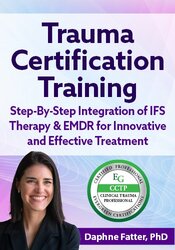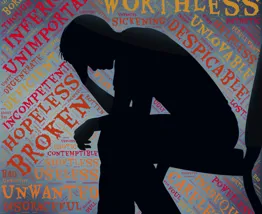Enrol in an online course today for flexible, self-paced learning—no fixed schedule required. Plus, enjoy lifetime access to course materials for convenient revisiting.
Interpersonal Neurobiology and the (other) 3 Rs
This conference will offer an overview of a field called interpersonal neurobiology (IPNB) and its potential applications to the fields of education, public policy, and mental health. IPNB is a field that combines many disciplines of science into one framework that examines the development of a healthy mind. By viewing the mind as a regulatory process that is both embodied and relational, IPNB offers us a new way of focusing directly on the education of the mind to create reflective skills, relational intelligence, and resilience in the face of life’s challenges. These can be viewed as new, additional ‘R’s’ of education.
In the first of three segments of this presentation, we will explore the human brain and how it develops during the first years of life. For example, we’ll examine the way the brain changes in response to experience in a process called neuroplasticity and how teachers can optimize student learning or parents can promote resilience by harnessing the power of the brain to grow in specific integrative ways – how it links differentiated areas to each other. Integration in the brain is the basis for well-being in our bodies and resilience in our lives. We’ll highlight a number of ways in which neuroplasticity to cultivate integration can be supported, including the close paying of attention, playfulness and humor, and the encouragement of good sleep and nutritional habits.
In the second section of the presentation, we’ll explore how the mind can be defined as an embodied and relational process that regulates the flow of energy and information. Teachers, policy makers and parents embracing this working definition are then in a position to take the foundations of regulation – the ability to monitor something and then modify that something – and strengthen them directly in the classroom, community, and home. Although the fields of science and professional practice focusing on the mind do not have a formal definition of the mind itself, IPNB offers a useful definition that empowers us to stabilize the ability of children and adolescents to monitor energy and information flow in their bodies and in their relationships. This is the heart of the notion of an ‘internal education’ focusing on the internal mental life of the self and of others – a process we can simply refer to as ‘mindsight’. We’ll also explore how the process of integration, the linkage of differentiated parts, is at the heart of optimal mental life and the cultivation of resilience.
Finally in our third segment, we’ll explore the science of relationships and see how the way we approach development can draw on the social nature of the brain to inspire deep learning and the cultivation of mindsight skills. Practical applications of this science will be further elaborated, and ways of weaving the new 3 R’s of internal education into daily activities will be explored.
Developing Minds: Mental Health, Children & Young People Conference, with Dan Siegel, is at the QE11 Centre in central London on Feb 8 2019.
#developingmindsconference


















